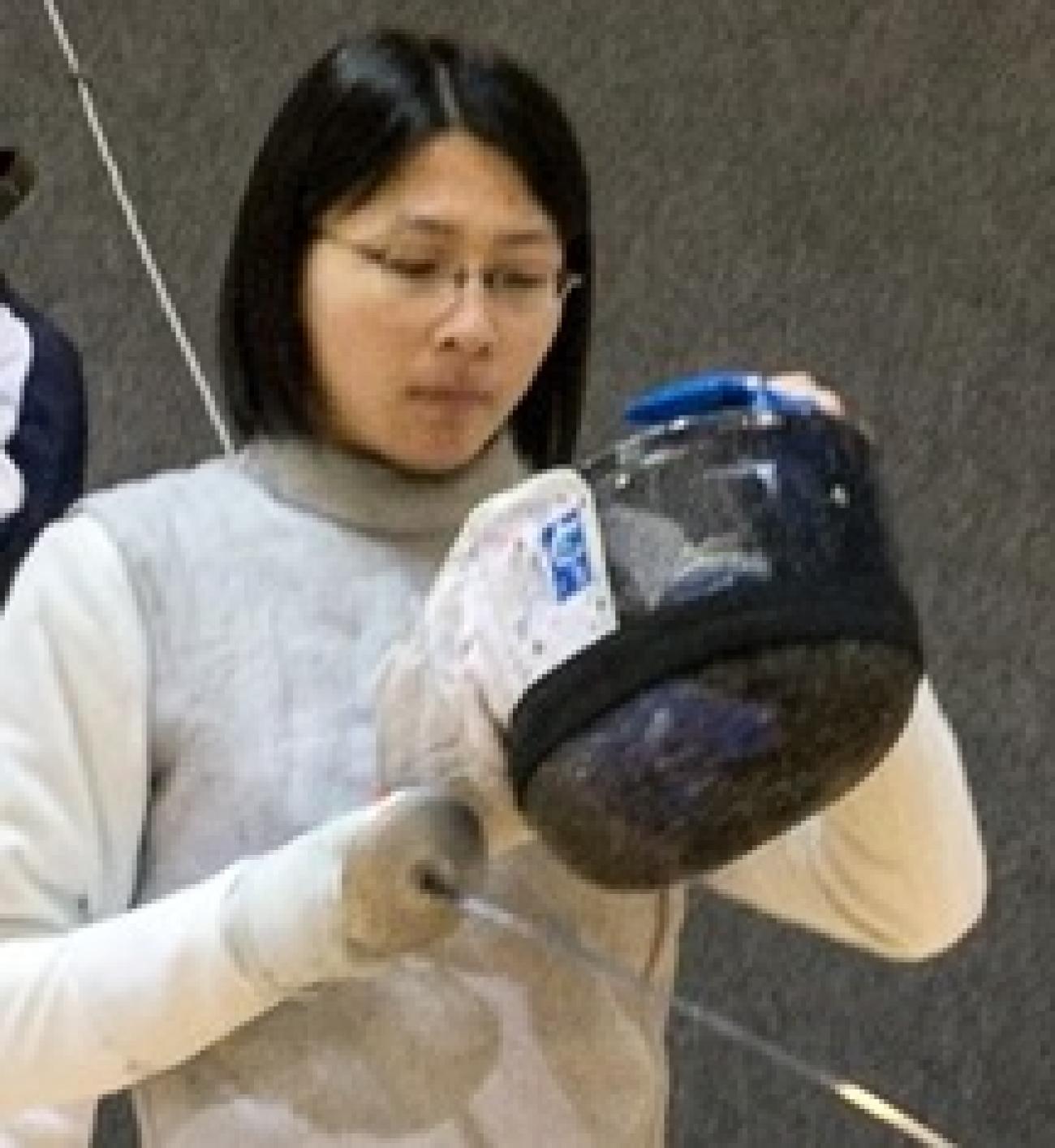
I realized something wasn’t right when I was out of breath from simply walking up a hill to get to class during my senior year in college. I had been an active fencer since high school, and it didn’t make sense that walking up a hill would give me so much trouble. I visited my doctor after graduation, and I was put in the hospital the next day. My nurse came in and told me, “We are paging the doctor who does bone marrow bone marrow: The soft, spongy tissue inside most bones. Blood cells are formed in the bone marrow. biopsies to come back. He left to go home for the weekend, but I don’t think you can wait until Monday.”
It was a scary thought that I may be seriously ill, but I had no doubt that I was going to get through it. I would like to say that I was so confident because I’ve always been a stubborn fighter. In reality, I was just in denial that anything could be seriously wrong with me when I was only 21!
One month later, I was finally diagnosed with PNH. The transition from college to working full time as an information systems security professional was especially difficult while dealing with anemia anemia: (uh-NEE-mee-uh) A condition in which there is a shortage of red blood cells in the bloodstream. This causes a low red blood cell count. Symptoms of anemia are fatigue and tiredness. and fatigue. I started on prednisone prednisone: Prednisone a man-made version of a hormone produced naturally by the adrenal gland that can help reduce inflammation and stop allergic responses. It is prescribed when the body is not producing enough of this chemical on its own. How does it work? For PNH, it may be used to decrease… and my blood counts went on roller coaster rides – a minor cold would make my counts plummet. I had my first hemolytic (abnormal breakdown of red blood cells) episode with dark urine while I was over 2,000 miles away from home on a trip for work. I frantically called my doctors who increased my prednisone dosage to get through the trip. It was becoming obvious that staying on prednisone would not be a long-term solution (plus I hated the chipmunk cheeks). I started eculizumab eculizumab: Eculizumab (Soliris ®) is given as an IV into a vein at the doctor’s office or at a special center. The procedure usually takes about 35 minutes. You will probably get an IV once a week for the first 4 weeks. Starting in the 5th week, you will get a slightly higher dose of Soliris every 2 weeks. … (Soliris®) soon after and while my counts have never gone up to normal (my hemoglobin hemoglobin: A protein in the red blood cells. Hemoglobin picks up oxygen in the lungs and brings it to cells in all parts of the body. hovers around the 9s and normal for females is 12-16), they have held stable, so I could relax and adjust to life with PNH.
I had stopped fencing after college because of the combination of PNH and a full time job, but my favorite sport was always in the back of my mind. Three years after I was diagnosed with PNH, I stepped into a fencing club, and I immediately felt at home. I listened to the familiar sounds of fencing blades clashing, and I couldn’t wait to jump in. I made up my mind to try to fence regularly again and make it back to competitions. Getting into the rhythm of going to practice regularly turned out harder than I expected. It was always tempting to skip a practice because I felt tired. I learned to force myself to just get out of the house. Staying hydrated and getting enough sleep were also instrumental in getting my body to adjust to the new routine. Eventually I found that I actually have more energy when I am staying active.
Six months later, I started going to competitions again. Every competition has brought joy and frustration. Joy, because I am able to compete in the sport I love despite having PNH. Frustration, because constantly being out of breath is a reminder that I have PNH and my stamina will never be the same. Initially, handling the frustration was a bit of a struggle, but I realized how lucky I am just to be able to fence. I came to accept the frustration and embraced the joy. It has been a wild journey with PNH, and it molded me into the person I am today.
In addition to fencing again, I also added new experiences in my life since I was diagnosed with PNH. I am a committee member with the PNH Foundation since the end of 2011. I became involved because I loved their mission and wanted to help other patients get access to a specialist and receive all the information about PNH that they need. There was limited information online regarding PNH when I was diagnosed six years ago, and I didn't truly understand the disease and my treatment options until I saw a PNH specialist. I want to help other patients to have the same opportunity to learn about PNH and their course of treatment.
I also went fishing on a boat and tried out horseback riding, and I’m looking forward to traveling to new places. PNH hasn’t stopped me from enjoying life, and I plan to keep enjoying it for a long time to come.

